 W
WThomas Graham Balfour was a Scottish physician noted for his work with medical statistics, and a member of Florence Nightingale's inner circle.
 W
WDavid John Bartholomew, was a British statistician who was president of the Royal Statistical Society between 1993 and 1995. He was professor of statistics at the London School of Economics between 1973 and 1996.
 W
WSheila Macdonald Bird OBE FRSE FMedSci is a Scottish biostatistician whose assessment of misuse of statistics in the British Medical Journal (BMJ) and BMJ series ‘Statistics in Question’ led to statistical guidelines for contributors to medical journals. Bird's doctoral work on non-proportional hazards in breast cancer found application in organ transplantation where beneficial matching was the basis for UK's allocation of cadaveric kidneys for a decade. Bird led the Medical Research Council (MRC) Biostatistical Initiative in support of AIDS/HIV studies in Scotland, as part of which Dr A. Graham Bird and she pioneered Willing Anonymous HIV Surveillance (WASH) studies in prisons. Her work with Cooper on UK dietary bovine spongiform encephalopathy (BSE) exposure revealed that the 1940–69 birth cohort was the most exposed and implied age-dependency in susceptibility to clinical vCJD progression from dietary BSE exposure since most vCJD cases were younger, born in 1970–89. Bird also designed the European Union's robust surveillance for transmissible spongiform encephalopathies in sheep which revolutionised the understanding of scrapie.
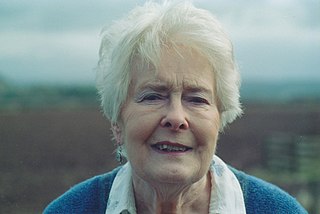 W
WVera Dorris Lilian Carstairs was a British social scientist noted, in particular, for a groundbreaking 1991 research study, Deprivation and Health in Scotland, which related mortality, morbidity and hospital admissions in Scotland, with the social composition and living standards found in Scottish areas. She gives her name to the Carstairs index.
 W
WColin Grant Clark was a British and Australian economist and statistician who worked in both the United Kingdom and Australia. He pioneered the use of gross national product (GNP) as the basis for studying national economies.
 W
WCharlotte Mary Deane is an English Professor of Structural Bioinformatics and the former Head of the Department of Statistics at the University of Oxford.
 W
WSir Ian David Diamond is a British statistician, academic, and administrator, who served as Principal and Vice-Chancellor of the University of Aberdeen until 2018. He became the UK's National Statistician in October 2019.
 W
WChristl Ann Donnelly is a professor of Statistical Epidemiology at Imperial College London, the University of Oxford and a Fellow of St Peters College, Oxford. She serves as associate director of the MRC Centre for Global Infectious Disease Analysis.
 W
WDame Karen Hope Dunnell, DCB, FAcSS is a British medical sociologist and civil servant. She was National Statistician and Chief Executive of the Office for National Statistics of the United Kingdom and head of the Government Statistical Service from 1 September 2005 until retiring on 28 August 2009. Since its inception in 2008, she was also the Chief Executive of the UK Statistics Authority. She now has a range of non-executive roles including membership of Pricewaterhouse Coopers Public Interest Body, Trustee of National Heart Forum, member of the Court of Governors, University of Westminster.
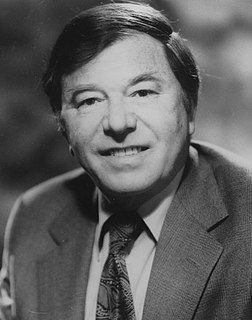 W
WJames Durbin FBA was a British statistician and econometrician, known particularly for his work on time series analysis and serial correlation.
 W
WAnthony William Fairbank Edwards, FRS is a British statistician, geneticist and evolutionary biologist. He is the son of the surgeon Harold C. Edwards, and brother of medical geneticist John H. Edwards. He has sometimes been called "Fisher's Edwards" to distinguish him from his brother, because he was mentored by Ronald Fisher.
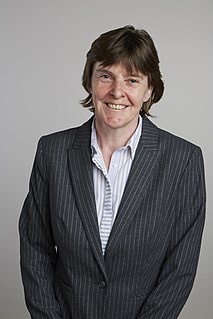 W
WAlison Mary Etheridge is Professor of Probability and Head of the Department of Statistics, University of Oxford. Etheridge is a fellow of Magdalen College, Oxford.
 W
WSir Alfred William Flux CB was a British economist and statistician.
 W
WIan Ford FRSE FRCP(Glas) FSCT is professor of biostatistics and director of the Robertson Centre for Biostatistics, and former Dean of Faculty, Information and Mathematical Sciences, at the University of Glasgow.
 W
WDavid Victor Glass was an eminent English sociologist and was one of the few sociologists elected to the Royal Society. He is also one of the very few people to be elected both Fellow of the British Academy and Fellow of the Royal Society. He was professor of sociology at the London School of Economics, 1948–1978.
 W
WWilliam Augustus Guy was a British physician and medical statistician.
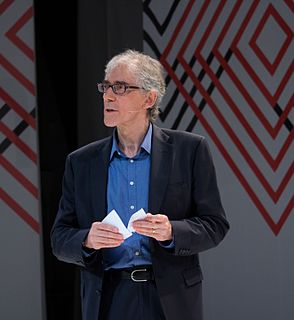 W
WDavid John Hand OBE FBA is a British statistician. His research interests include multivariate statistics, classification methods, pattern recognition, the computational statistics and the foundations of statistics. He has written books on finance, measurement and computation in statistics, as well as authoring the Very Short Introduction to statistics.
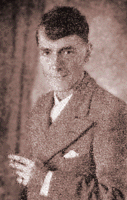 W
WLancelot Thomas Hogben FRS FRSE was a British experimental zoologist and medical statistician. He developed the African clawed frog (Xenopus laevis) as a model organism for biological research in his early career, attacked the eugenics movement in the middle of his career, and popularised books on science, mathematics and language in his later career.
 W
WAlice Lee (1858–1939) was a British mathematician, one of the first women to graduate from London University. She was awarded a PhD in 1901. She worked with Karl Pearson from 1892. She demonstrated that the correlation between cranial capacity and gender was not a sign of greater intelligence in men compared to women.
 W
WPeter Nicholas Lee is an English chess player who won the British Chess Championship in 1965. Born in London and educated at Exeter College, Oxford, he represented Oxford University in the Varsity chess matches of 1963, 1964, 1965, and 1966, and represented England in the Chess Olympiads of 1966, 1968, and 1970.
 W
WRosa Mabel Lee (1884-1976) was a statistician, the first woman scientist to be employed by the Marine Biological Association and the first woman to work as a government fishery scientist in the United Kingdom.
 W
WThomas Hoskyns Leonard is a British statistician and author. Originally from Devon, he studied for and obtained a doctorate in Statistics at the University of London. He went on to work at the University of Warwick and the University of Wisconsin-Madison, before taking up the Chair of Statistics at the University of Edinburgh.
 W
WDenise Anne Lievesley, is a British social statistician. She has formerly been Chief Executive of the English Information Centre for Health and Social Care, Director of Statistics at UNESCO, in which capacity she founded the UNESCO Institute for Statistics, and Director (1991-1997) of what is now the UK Data Archive.
 W
WJonathan Laurence Marchini is a Bayesian statistician and professor of statistical genomics in the Department of Statistics at the University of Oxford, a tutorial fellow in statistics at Somerville College, Oxford and a co-founder and director of Gensci Ltd. He co-leads the Haplotype Reference Consortium.
 W
WGilean Alistair Tristram McVean is a professor of statistical genetics at the University of Oxford, director of the Big Data Institute, fellow of Linacre College, Oxford and co-founder and director of Genomics plc. He also co-chaired the 1000 Genomes Project analysis group.
 W
WJohn Micklewright is Professor Emeritus of Economics and Social Statistics at UCL Institute of Education, University College London.
 W
WFlorence Nightingale, was an English social reformer, statistician and the founder of modern nursing. Nightingale came to prominence while serving as a manager and trainer of nurses during the Crimean War, in which she organised care for wounded soldiers at Constantinople. She gave nursing a favourable reputation and became an icon of Victorian culture, especially in the persona of "The Lady with the Lamp" making rounds of wounded soldiers at night.
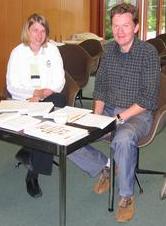 W
WGesine Reinert is a University Professor in Statistics at the University of Oxford. She is a Fellow of Keble College, Oxford, a Fellow of the Alan Turing Institute, and a Fellow of the Institute of Mathematical Statistics. Her research concerns the probability theory and statistics of biological sequences and biological networks.
 W
WSir Robert Henry Rew was a British agricultural statistician. He had a long career in public service and was a prominent member of the Royal Statistical Society serving as its President from 1920-22.
 W
WHeather Jane Savory is a British former chair of the Chair of the Open Data User Group. She has been the deputy national statistician and works on Big Data for the United Nations.
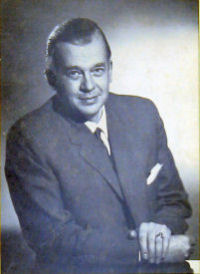 W
WErnst Friedrich Schumacher was a German-British statistician and economist who is best known for his proposals for human-scale, decentralised and appropriate technologies. He served as Chief Economic Advisor to the British National Coal Board from 1950 to 1970, and founded the Intermediate Technology Development Group in 1966.
 W
WSir Franz Arthur Friedrich Schuster FRS FRSE was a German-born British physicist known for his work in spectroscopy, electrochemistry, optics, X-radiography and the application of harmonic analysis to physics. Schuster's integral is named after him. He contributed to making the University of Manchester a centre for the study of physics.
 W
WJohn Stewart Shawe-Taylor is Director of the Centre for Computational Statistics and Machine Learning at University College, London (UK). His main research area is statistical learning theory. He has contributed to a number of fields ranging from graph theory through cryptography to statistical learning theory and its applications. However, his main contributions have been in the development of the analysis and subsequent algorithmic definition of principled machine learning algorithms founded in statistical learning theory. This work has helped to drive a fundamental rebirth in the field of machine learning with the introduction of kernel methods and support vector machines, including the mapping of these approaches onto novel domains including work in computer vision, document classification and brain scan analysis. More recently he has worked on interactive learning and reinforcement learning. He has also been instrumental in assembling a series of influential European Networks of Excellence. The scientific coordination of these projects has influenced a generation of researchers and promoted the widespread uptake of machine learning in both science and industry that we are currently witnessing. He has published over 300 papers with over 42000 citations. Two books co-authored with Nello Cristianini have become standard monographs for the study of kernel methods and support vector machines and together have attracted 21000 citations. He is Head of the Computer Science Department at University College London, where he has overseen a significant expansion and witnessed its emergence as the highest ranked Computer Science Department in the UK in the 2014 UK Research Evaluation Framework (REF).
 W
WEdward Hugh Simpson CB was a British codebreaker, statistician and civil servant. He was best-known for describing Simpson's paradox along with Udny Yule.
 W
WMatt Singh is an election and opinion polling analyst and founder of the website Number Cruncher Politics, based in London. Singh rose to prominence in mid-2015 for his analysis which correctly predicted the opinion polling failure and Conservative victory at the 2015 UK general election.
 W
WMatthew Stephens is a Bayesian statistician and professor in the departments of Human Genetics and Statistics at the University of Chicago. He is known for the Li and Stephens model as an efficient coalescent.
 W
WSir John Richard Nicholas Stone was an eminent British economist, educated at Westminster School and Cambridge University. In 1984 he received the Nobel Memorial Prize in Economic Sciences for developing an accounting model that could be used to track economic activities on a national and, later, an international scale.
 W
WHowell Tong is a pioneer and an acknowledged authority in the field of nonlinear time series analysis, linking it with deterministic chaos. He is the father of the threshold time series models, which have extensive applications in ecology, economics, epidemiology and finance.
 W
WMajor-General Sir Alexander Murray Tulloch was a British soldier and a statistician.
 W
WArnold Weinstock, Baron Weinstock, OMRI, was an English industrialist and businessman known for making General Electric Company one of Britain's most profitable companies. The City criticized Weinstock for his financial caution but after he retired as managing director in 1996, under his successor a series of ill-judged acquisitions led to catastrophic losses.
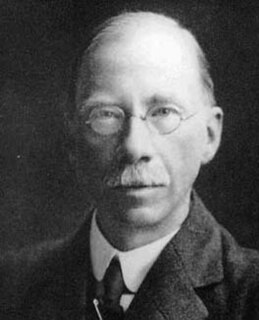 W
WGeorge Udny Yule FRS, usually known as Udny Yule, was a British statistician, particularly known for the Yule distribution.